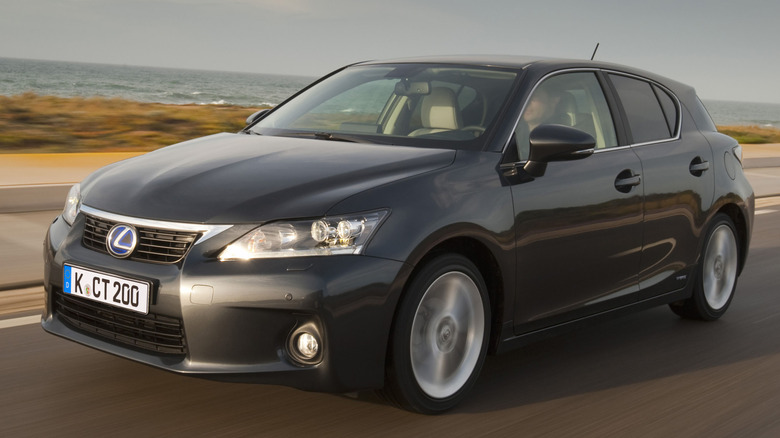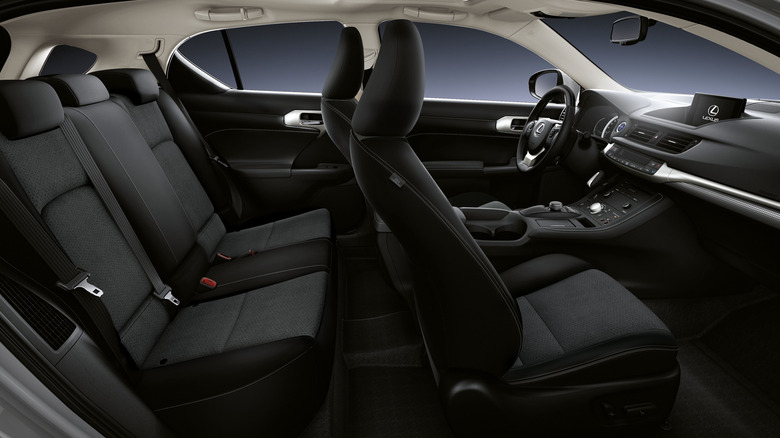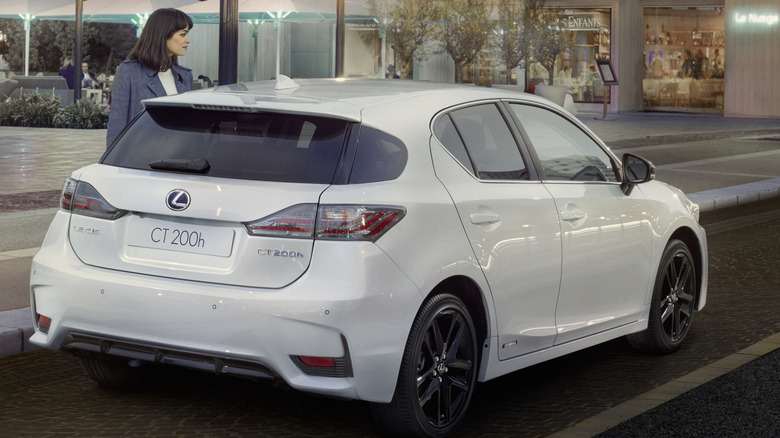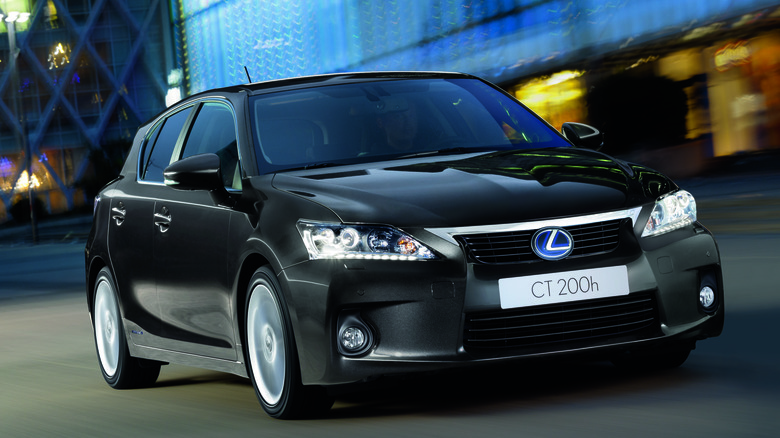Why Did Lexus Discontinue The CT Hybrid And What Took Its Place?
Lexus introduced the CT200 Hybrid, or CT200h, in 2011, when there were very few hybrid-powered offerings from luxury car makers. The car shared the drivetrain of the Toyota Prius with some attempts at upgrading the interior and handling. These days, the Prius is still in production and even saw an overhaul in 2023, but the CT200h disappeared from the U.S. in 2017. The Lexus was withdrawn over a few years, with the Japanese market seeing the last ones in 2022.
When the CT200h first came out, the response from automotive journalists was relatively positive. The car developed a reputation for reliability compared to gasoline-powered vehicles in the luxury small car bracket. Customers needing a more sporty car needed to go elsewhere, however.
That the CT200h faced some issues is beyond doubt. Sales of the car dropped steadily after 2014, despite a facelift in that year. A set of problems, some of which were beyond Toyota's control, led to the CT200h's demise.
CT200h performance and concept
Compared to its premium marque competitors, the CT200h had a lot to offer. It was more reliable and had better gas mileage. It could even do something that the Audi A3 and BMW 1 series of the time could not do at all: The CT200h could drive about a mile and a quarter without the internal combustion engine operating at all. The CT200h racked up a 0-60mph time of 10.4 seconds. The F Sport option improved the handling somewhat, but not the acceleration. Some automotive journalists at that time complained about the harsh ride of the F Sport.
Echoes of the Prius also drew criticism. The CT200h failed to differentiate itself enough from Toyota in positive ways to keep the public's attention. The Lexus had less cargo space and did not present enough of a luxury experience to warrant the extra expenditure. For someone who wanted to avoid the "Prius" label but still wanted the reliability the drivetrain offered, the Lexus made sense. Otherwise, a higher-end Toyota had more allure.
Pulling the plugs (all around)
By 2017, the CT200h was falling behind, despite a 2014 face-lift. Lexus' first-mover advantage had disappeared. Sales plummeted from 8,903 units in 2016 to 4,690 in 2017. Car and Driver noted that competition from luxury brands and even its stable-mate Prius made the car seem slow, outdated, and under-refined.
One potent example of how times had changed was the BMW 330 hybrid. The 2015 ActiveHybrid 3 featured a 3-liter six-cylinder gasoline-powered engine and an electric motor that could travel 2.5 miles unassisted and boost output by 30 hp. Even encumbered with the extra weight of the electric motor, the BMW hybrid could reach 0-60 in 5.1 seconds, or roughly half the time of the Lexus.
Toyota brought out the fourth generation Prius for the 2016 model year. Instead of mirroring the changeover, Lexus stopped sales of the CT200h in the U.S. in 2017 and replaced it with the UX series hybrid. The CT200h was phased out worldwide by the 2022 model year.
Replacements for the CT200h
Changing customer expectations required a clean slate on several levels. Lexus responded by delivering a car that was not so obviously Prius-derived. Launched for the 2019 model year, the new UX250h was based on the Toyota Corolla chassis and had a 2-liter gasoline engine up front and an electric motor in the back. It ran a 0-60mph time of 8.6 seconds. The new interior was also considered Lexus-like rather than the more Toyota-like interior of the CT200h. Unlike the CT200h, the new hybrid could charge itself and be in electric-only mode 50% of the time.
Fuel efficiency rose from 42 mpg combined in the CT200h to 57 mpg combined in the new car. The UX250h shared its body with a gasoline-only version, the UX200. The UX series reflected a move by consumers toward cross-overs, even in the small car segment. UX, in this case, stood for Urban Explorer, and it competed against the BMW X1 and Audi Q3. The UX has been a successful crossover for Lexus, and in 2023, it was updated to the UX300h, and the gasoline-powered version was dropped completely.



